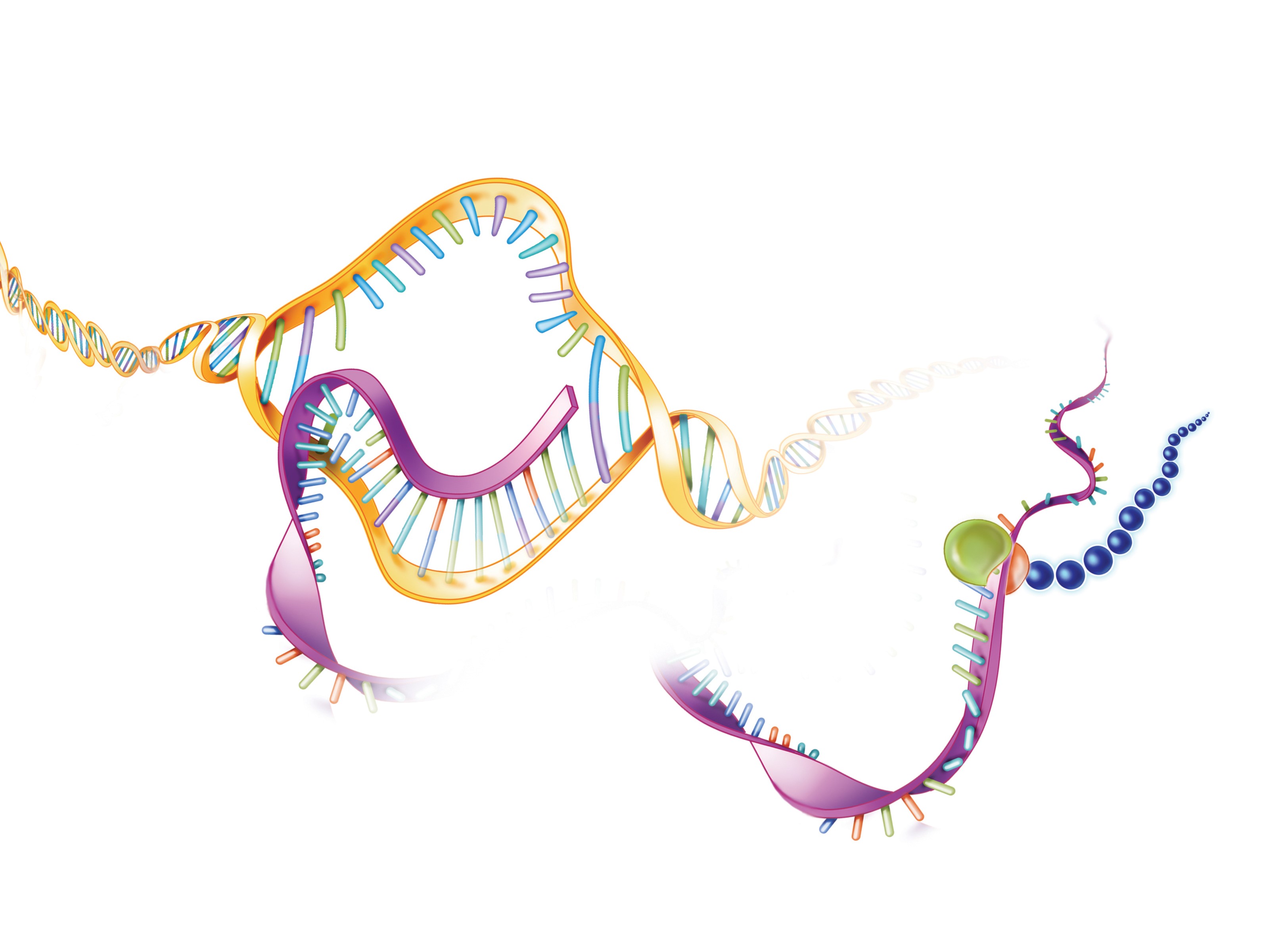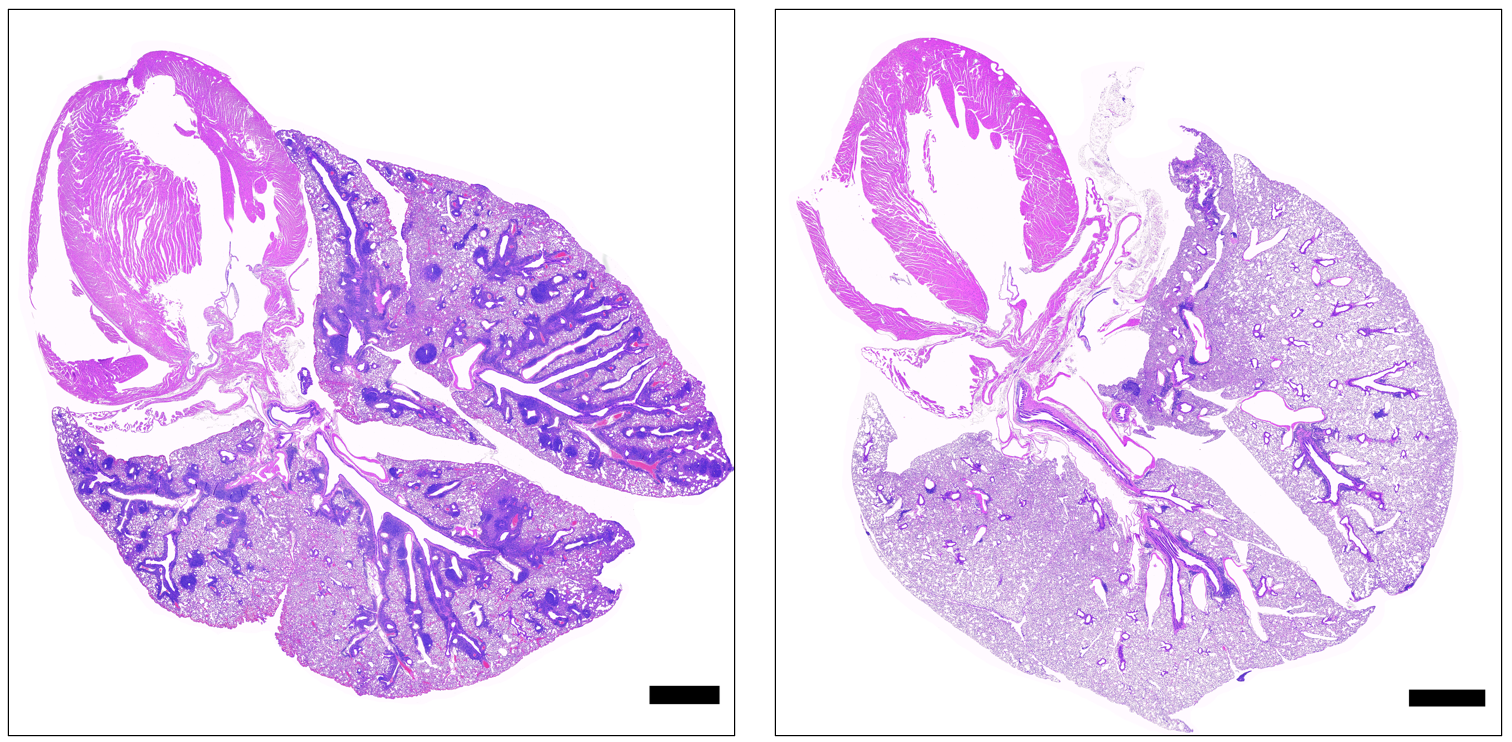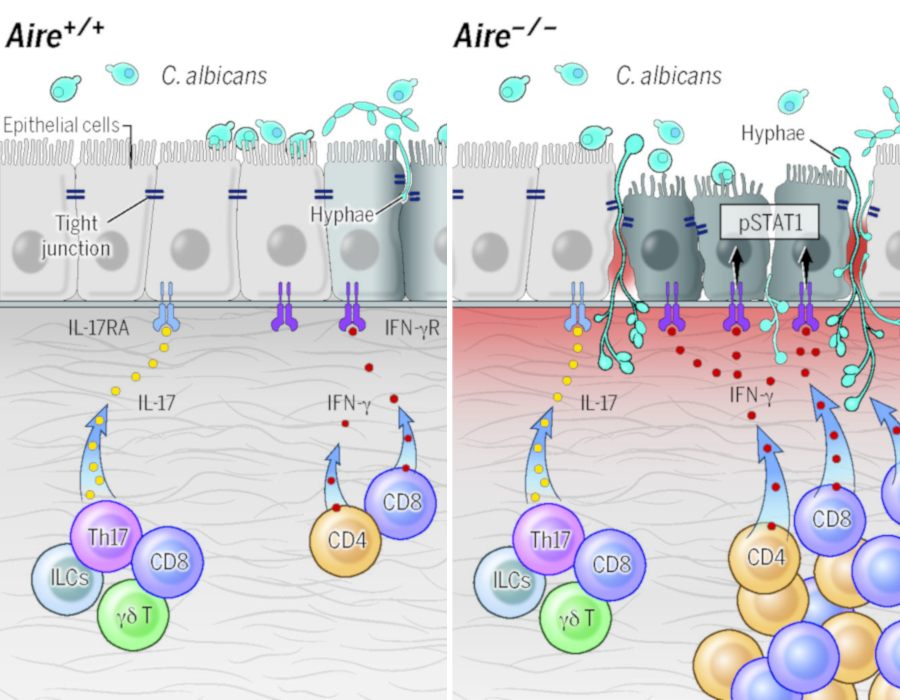Autoimmune polyglandular syndrome type 1 (APS-1), also called autoimmune polyendocrinopathy-candidiasis-ectodermal dystrophy (APECED), is a genetic immune disorder. This disorder has a diverse range of symptoms, including autoimmunity against different organs and an increased susceptibility to candidiasis, a fungal infection caused by Candida yeast.
The syndrome is caused by mutations in the autoimmune regulator (AIRE) gene. NIAID researchers are exploring how AIRE mutations impact the function of cells by studying people with APS-1 (APECED), as well as using mouse models of AIRE deficiency. With a better understanding of how these mutations affect the immune system and other cells in the body, researchers hope to uncover promising therapeutic targets to prevent and treat persistent candidiasis and autoimmune disorders.
By evaluating a large group of people from North and South America with this rare immune disorder, NIH scientists in 2016 re-defined the clinical features and diagnostic criteria for APS-1 (APECED). The FUNGI Study, a natural history study following adults and children with APS-1 (APECED), began in 2011 and is currently enrolling eligible participants.
The APECED fact sheet has detailed information about the cause of APS-1 (APECED) and its inheritance pattern, diagnosis, symptoms, and treatment, as well as information and coping strategies for affected families.
Scientific Advances
Scientists Discover Cause, Potential Treatment for Cases of Deadly Autoimmune Disorder
November 6, 2024Discovery of a gene variant causing some cases of APECED, a rare inherited autoimmune disease, will enable earlier diagnosis & medical care that may prolong lives.

Existing Drug Shows Promise as Treatment for Rare Genetic Disorder
May 30, 2024A drug approved to treat certain autoimmune diseases and cancers successfully alleviated symptoms of a rare genetic syndrome called autoimmune polyendocrine syndrome type 1 (APS-1).

How Do Fungal Infections Take Hold? Rare Disease Offers New Insights
January 14, 2021By studying the rare disease APECED, NIAID researchers and colleagues uncovered an unexpected immune mechanism that promotes susceptibility to fungal infections of the mucous membranes. Their findings suggest potential therapies for people with APECED and pave the way for work to investigate these tissue-specific immune responses in other diseases.



